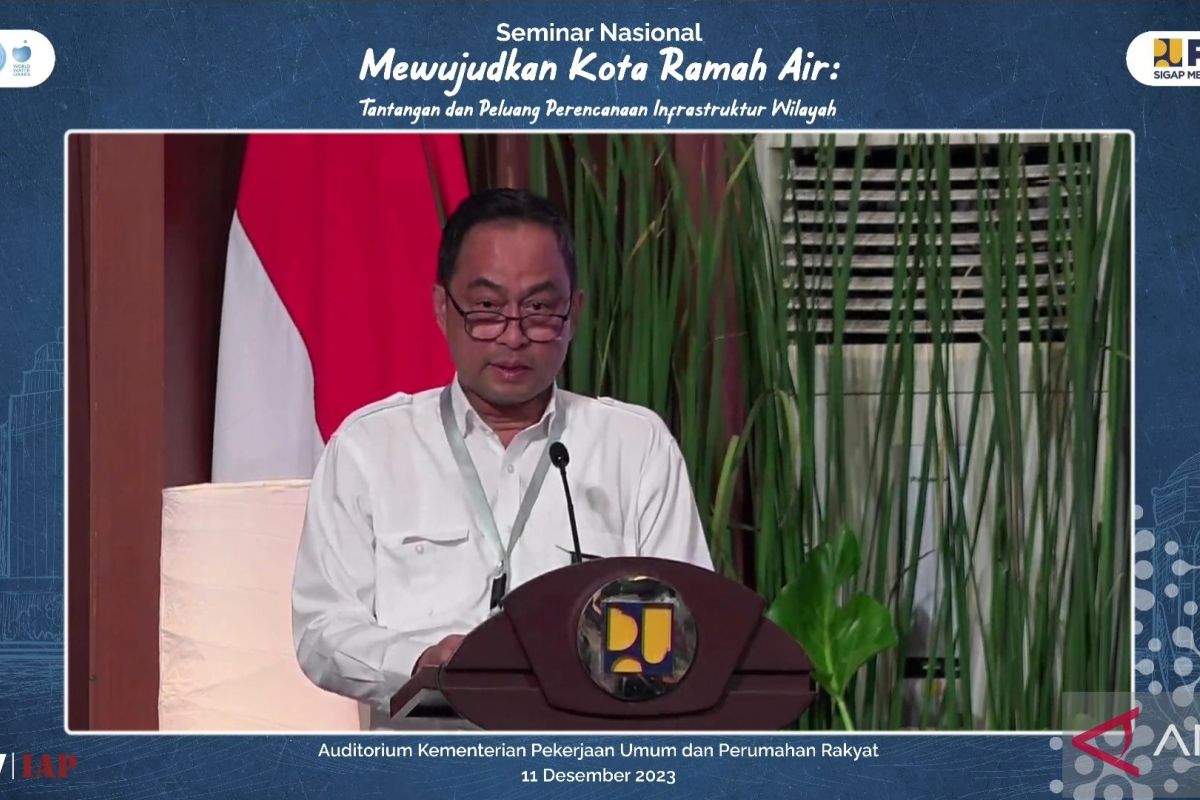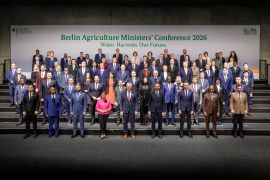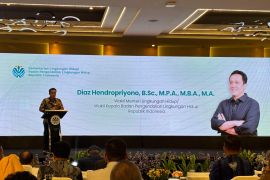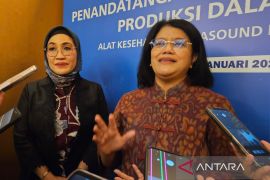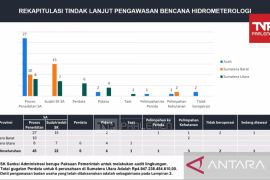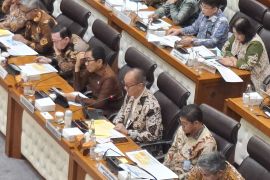efforts to handle interconnections (and) preserve water resources and aquatic ecosystems sustainably are neededJakarta (ANTARA) - Water security is essential to achieve sustainable growth towards the achievement of a Golden Indonesia in 2045, according to the Ministry of Public Works and Public Housing.
Head of the ministry's Regional Infrastructure Development Agency, Yudha Mediawan, made the statement at a discussion themed "Realizing a Water Sensitive City: Challenges and Opportunities in Regional Infrastructure Planning" in Jakarta on Monday.
He explained that water security refers to the fulfillment of adequate water needs for life and development as well as a state where risks related to water are managed.
This is in line with Presidential Regulation Number 37 of 2023 concerning the National Water Resources Policy, where water security is one of the foundations for increasing economic sustainability and productivity of Indonesian society.
Mediawan cautioned that if water is not managed properly, it would have a negative impact on life, such as related to the El Nino phenomenon, which causes drought, and La Nina, which causes floods, that can damage biodiversity.
Related news: ADIO and Gradiant Forge Water Security Partnership
"To this end, efforts to handle interconnections (and) preserve water resources and aquatic ecosystems sustainably are needed," he remarked.
Mediawan drew attention to several challenges related to the management of water resources, such as the high levels of population and urbanization.
Indonesia's population is forecast to rise by 24 percent in 2050 to reach 330.9 million people, out of which 72.9 percent will live in urban areas.
The government is making efforts to manage water resources, including managing demand and supply to ensure that the water balance in river areas is not in a deficit, critical, or low condition.
The other efforts are increasing water storage capacity to 200 cubic meters per capita, utilizing water resources with the water accounting principles for environmental conservation aspects in the water supply chain, balance principles, and management integration to increase urban areas' resilience to floods.
"In that time, Indonesia needs to increase it (water storage capacity) to 50 billion m3, from the current 19 billion m3, an increase of almost 160 percent," Mediawan stated.
Related news: Hot temperatures may threaten food security, agriculture: CIPS
Translator: Adimas Raditya, Raka Adji
Editor: Jafar M Sidik
Copyright © ANTARA 2023
